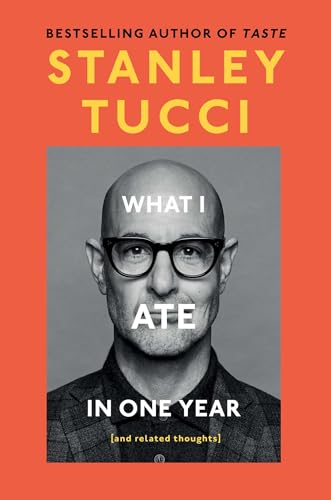
What I Ate in One Year
Stanley Tucci
About the Author

Stanley Tucci
Questions & Answers
Stanley Tucci employs food as a narrative device to explore themes of memory and identity by intertwining his culinary experiences with personal anecdotes and reflections. His descriptions of dishes and meals often evoke vivid memories, highlighting the emotional connections between food and his past. For instance, the mention of a particular restaurant or dish can trigger memories of family, friends, or significant life events, underscoring the role of food in shaping his identity. Tucci's narrative also delves into the concept of memory, as he reflects on the fading of his own memory and the importance of preserving memories through shared experiences with family and friends. Additionally, his exploration of food preferences and dislikes can be seen as a reflection of his evolving identity, influenced by his cultural background, personal experiences, and changing tastes over time.
Food plays a central role in Stanley Tucci's life, reflecting his values and priorities through various aspects. He deeply appreciates the culinary experience, often describing his love for diverse cuisines and dishes. His enthusiasm for food is evident in his frequent dining experiences, both casual and luxurious, and his involvement in cooking, which he finds both a practical and meditative activity. Tucci's appreciation for food transcends mere sustenance; it's a means to connect with others, celebrate life, and preserve memories. His stories about food often underscore the importance of family, friendship, and cultural heritage, emphasizing the value of shared experiences and the joy of living. His reflections on food also highlight his appreciation for the art of cooking and the role of food in storytelling and film.
Stanley Tucci's exploration of food and cooking in his book "What I Ate in One Year" is deeply intertwined with his career as an actor and experiences in the entertainment industry. His passion for food mirrors his dedication to his craft, showcasing his attention to detail and appreciation for artistry. As an actor, Tucci often finds himself away from home, which affects his family life and work-life balance. Cooking and sharing meals with family and friends provide him with a sense of normalcy and connection amidst the chaos of his career. His experiences in the entertainment industry, including encounters with various cultures and cuisines, enrich his understanding of food and its role in human connection. Tucci's narrative also reflects his ability to find solace and inspiration in the kitchen, much like he does on stage or in front of the camera.
Stanley Tucci's reflections on food and life offer profound insights into the human experience. He emphasizes the role of food in creating connection and memory, highlighting its ability to bring people together and comfort them. Tucci's narrative also underscores the importance of family, work-life balance, and the passage of time. He contemplates the inevitability of death and the search for meaning in life, often finding solace in food and the rituals surrounding it. His musings on the culinary arts, both in Italy and the UK, reveal a deep appreciation for the cultural significance of food and its impact on daily life. Through his personal anecdotes and observations, Tucci invites readers to reflect on their own lives, the value of shared experiences, and the enduring power of food in shaping our existence.
Stanley Tucci's narrative style significantly contributes to the impact of his book. His conversational and personal tone creates an intimate connection with the reader, making the book feel like a casual conversation about his life and experiences. His detailed descriptions of food and settings are vivid and engaging, offering a sensory experience that complements his storytelling. Tucci's self-deprecating humor and willingness to share personal anecdotes, including his struggles and triumphs, make the book relatable and endearing. His reflective nature, often pondering life's complexities through the lens of food and experiences, adds depth and introspection, offering readers both entertainment and thought-provoking content. Overall, Tucci's narrative style makes the book a compelling and enjoyable read.